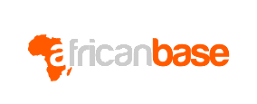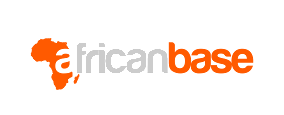This selection of fertility apps for Android and iPhone will be helpful if you're attempting to get pregnant.
Trying to get pregnant? For that, an app exists. In actuality, the market for fertility apps has never, well, been more fertile. See which of these 10 ovulation, period, and fertility trackers can help you conceive.
You've definitely heard of period monitoring apps, particularly well-known ones like Clue, but did you realize that these apps also offer technology for tracking fertility and ovulation? Some apps even focus on assisting with conception and offering a network of people who share your interests and experiences.
Although there are physical ovulation and fertility tests, an app can help you keep the results of those tests organized and help you get even better estimates on when your best chances of getting pregnant are. It's important to note that these apps will never be 100% accurate, but they'll at least give you an idea of when your fertility window typically falls.
We have an app for everything now, including baby-making. If you're TTC—that's "trying to conceive" for the newbies—and eager to get pregnant as efficiently as possible (and let's face it, in the age of Google Calendar, isn't that all of us?), these apps can help you with pretty much everything you need to conceive quickly, except for, ahem, doing the deed itself. That's on you.
Clue
Clue is one of the most popular period tracking apps, but it can also offer valuable information about your ovulation cycle. The app used to have a Fertile Window display on the home screen, but because it's not completely accurate and not everyone needs to know this info, Clue is making a few changes.
Now, to stay in the know about your fertility, you have to go to the app's settings, select Ovulation, and toggle on the option to show your potential ovulation days. When this is on, you'll be able to navigate to specific days of the month and see whether it's listed as a Potential Fertile Day.
What it does: Plugging your data into an algorithm that calculates and predicts your own unique cycle, Clue tracks cramps, emotions, skin, hair, sleep, sex, pain, moods, cervical fluid and more.
Cost: Free
What makes it different: Clue improves your predictions with every tracked piece of your data (through cute emoji indicators), and is even optimized for Apple Watch.
Ovia
You can select whether you want to just track your period cycle or actively try to get pregnant when you create your Ovia profile. With the Ovia app, you may view various analytical trends after completing a full cycle, including your cycle trends, a cycle summary, and a fertility chart.
Your fertility score, the duration of your anticipated fertile window, the stage of your cycle, and a fertility prognosis for the following one to two weeks are all displayed on the main screen. Additionally, calendar view allows you to see all of this data in a larger variety. You can view estimates for your fertile window more than two weeks in advance in calendar view.
Quite a bit of educational material is also available on Ovia, which can be great for both new and existing parents. There's written content and videos on fertility, pregnancy, dealing with infertility, recipes, and other useful info.
Flo
If you're trying to get pregnant or want to keep track of your pregnancy, Flo is a fantastic app to have on your phone.
You have three options for your primary aim when you first download the app and join up: Track Cycle, Get Pregnant, or Track Pregnancy. The software will track, show, and meet your individual needs depending on the goal you select.
If you select "Get Pregnant" as your objective, the home screen will show you a message that informs you of the optimal time to conceive as well as the approximate day of your ovulation. And you may submit that information if you're taking any ovulation or fertility tests in real life, and Flo will use it to make a better prediction for you.
Glow
Like other fertility and period tracking apps, Glow lets you select a goal, choosing between tracking your cycle, trying to get pregnant, or tracking an existing pregnancy.
There's an extensive health profile you can fill out too in order to get the most accurate estimates, including crucial info about your partner, traditional menstruation questions, and your previous fertility and childbirth info.
On the home screen, your fertility forecast will tell you what phase of your cycle you're currently in as well as a generic low or high fertility estimate for that day. Then, looking at the calendar, you can see when your estimated ovulation day is and when the chances of you getting pregnant are highest.
Glow also has a bunch of curated content related to fertility, pregnancy, periods, and more from multiple websites. There's also a community where you can find other people at different stages in their pregnancy journey.
Fertility Friend
A lot of fertility or ovulation tracking apps require you to sign up for an account with your email, but if you don't want to do that, Fertility Friend provides a simple ovulation calculator you can use. This simple calculator doesn't require your details, but will only provide limited info on which days it estimates you'll be most fertile.
For a more detailed analysis and community features, you'll need to sign up with your email or Google account. On the home screen, you'll see which days you're expected to be most fertile. The longer you track your cycle, the more accurate these estimates will be.
You can also track all sorts of data about your cycle, including cervical fluid, various tests, mood and energy, medications, and more.
Period Tracker
Period Tracker is a cute and simple tracker that you can use for both trying to get pregnant and tracking your period cycle afterward. On the home screen, you'll see a simple display with the day of your next period and your next fertile day.
If you'd rather view things in a broader way, you can select the calendar view to see estimates for the current month as well as a few months out. When you click on an individual day, you'll get an estimate of low, medium, or high for that day's fertility.
Ovulation Calendar
On Ovulation Calendar's home screen, you'll see a week view and a display of your estimated chance of getting pregnant for the day that's selected. Using the plus sign on the home screen, you can add any notable info from the day, like your temperature, intercourse details, and other symptoms or tests completed that day.
On the app's Discover tab, you'll find very helpful posts on trying to conceive, as well as info on your menstruation cycle and PMS symptoms for before and after pregnancy. Then, when you get pregnant, you can turn on Pregnancy Mode in the app and track your baby's progress for the next nine to ten months.
Have fun on the trip!
The process of becoming pregnant isn't nearly as glamorous as it is in the movies, whether or not this is your first child. Getting pregnant frequently requires more than one attempt, and some activities may no longer be as enjoyable as they once were.
It's a little simpler to get pregnant these days, or at the very least, you can know when your chances of getting pregnant are greatest, thanks to practical modern technologies like digital fertility monitors and apps that track your fertility window and ovulation days. And even though it could be a trying process, try to keep in mind that at the end of it all, you'll have a baby.
Which fertility app is the most accurate?
The fact remains that many of these apps do the same tasks. But more knowledge is helpful while attempting to conceive. The American College of Obstetricians and Gynecologists' chair of Telehealth, Dr. Nathaniel G. DeNicola, claims that there is scientific proof that monitoring your cycle increases your chances of becoming pregnant.
However, he advises against placing too much faith in app firms' claims that their products would help you become pregnant much more quickly than other apps (or pen on a paper calendar). Few statistics on accuracy are gathered outside of the apps themselves. I wouldn't want a patient to see an app firm guarantee them a fantastic outcome that hasn't been been demonstrated." DeNicola said.
"Accurate ovulation timing and tracking of basal body temperature can be achieved by monitoring cervical mucus thickness and basal body temperature. I'm not sure whether there is an advantage that has been proven for the app that is connected to a vaginal thermometer."
However, more knowledge is typically beneficial while attempting to get pregnant. Choose the app with the interface that most closely matches your preferences, then start tracking!



.jpeg)





0 Comments
We Cherish Your Comments.
Thank You.